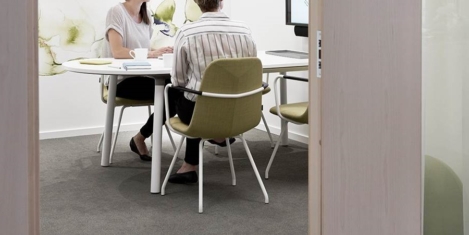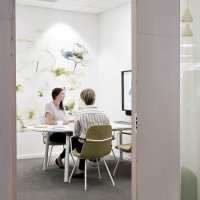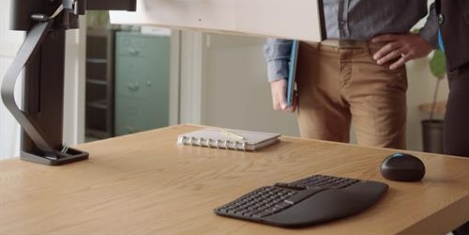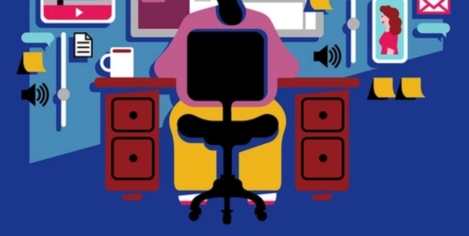April 21, 2022
Inflexible return to office strategies starting to damage workplace experience
 Future Forum, a consortium launched by Slack with Boston Consulting Group, MillerKnoll and MLT to “help companies reimagine work in the new digital-first workplace”, has released the latest findings from its global Pulse study, which shows that employee experience scores are plummeting for knowledge workers who have been asked to return to the office full-time and for those who do not have the flexibility to set their own work schedules. More than a third of knowledge workers (34 percent) are now working from the office five days a week, the greatest share since Future Forum began surveying in June 2020. With this shift, employee sentiment has dropped to near-record lows, including 28 percent worse scores on work-related stress and anxiety and 17 percent worse scores on work-life balance (compared to last quarter). (more…)
Future Forum, a consortium launched by Slack with Boston Consulting Group, MillerKnoll and MLT to “help companies reimagine work in the new digital-first workplace”, has released the latest findings from its global Pulse study, which shows that employee experience scores are plummeting for knowledge workers who have been asked to return to the office full-time and for those who do not have the flexibility to set their own work schedules. More than a third of knowledge workers (34 percent) are now working from the office five days a week, the greatest share since Future Forum began surveying in June 2020. With this shift, employee sentiment has dropped to near-record lows, including 28 percent worse scores on work-related stress and anxiety and 17 percent worse scores on work-life balance (compared to last quarter). (more…)










 The writer Alan Moore believes in magic. Not hocus-pocus magic, double double toil and trouble, but in the power of words and art to change reality and bring things into existence. It’s
The writer Alan Moore believes in magic. Not hocus-pocus magic, double double toil and trouble, but in the power of words and art to change reality and bring things into existence. It’s 






 Remote working swiftly evolved from a stopgap lockdown solution into a globally successful workstyle – and it’s set to stay. According to research quoted by
Remote working swiftly evolved from a stopgap lockdown solution into a globally successful workstyle – and it’s set to stay. According to research quoted by
 After nearly two turbulent years, which for many knowledge workers have been dominated by a ground-hog day like existence, people are looking for change. This is only natural as workers around the world are re-evaluating their priorities, reigniting their passions, or simply looking for something new. This has led to a mini-exodus from businesses, which is now being dubbed the ‘
After nearly two turbulent years, which for many knowledge workers have been dominated by a ground-hog day like existence, people are looking for change. This is only natural as workers around the world are re-evaluating their priorities, reigniting their passions, or simply looking for something new. This has led to a mini-exodus from businesses, which is now being dubbed the ‘
 More than a third (37 percent) of legal professionals have considered leaving their role due to poor mental health and wellbeing, according to the latest research from
More than a third (37 percent) of legal professionals have considered leaving their role due to poor mental health and wellbeing, according to the latest research from 
 According to a new report findings unreliable IT service and equipment (in-office or remote) was the third most influential factor for employee turnover or burnout, behind poor salary and an unhealthy work culture. Almost 20 percent of all respondents would opt to leave their job because of a poor IT experience. The
According to a new report findings unreliable IT service and equipment (in-office or remote) was the third most influential factor for employee turnover or burnout, behind poor salary and an unhealthy work culture. Almost 20 percent of all respondents would opt to leave their job because of a poor IT experience. The 







March 23, 2022
A burst of technological innovation is reshaping the future of work
by Toby Benzecry • Comment, Flexible working, Technology, Workplace design